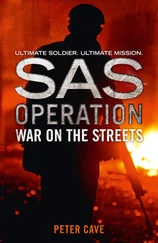The mood was upbeat because the reports that had arrived earlier from Russian naval units in the Baltic Sea had also been upbeat. Search teams on the scene had found wreckage from the K-363 and there was no indication that radioactive materials had escaped from the submarine’s reactor.
Cigar smoke hanging across the room in thick tattered layers parted like the sea when Paul Friedman strode up to the president of the United States and, after waiting for him to finish telling a dirty joke, asked for a moment of his time.
“Sure, Paul,” said the president, wiping an eye and looking around. “How about in there.”
They stepped into a small anteroom off the main gallery where the party buzzed. Friedman handed the president a message from Karl Radford. At first the president just looked at it, fearing the worst, that Scott’s report of the destruction of the K-363 before the terrorists could melt down the reactor had been wrong. On his orders the Russians hadn’t been told about how close they'd come to disaster, only that Zakayev and the others were dead.
“It’s okay, sir,” Friedman said. “I think you’ll like this.” The president read the message and the look of concern on his face changed to one of sheer delight. “Do the Russians know?”
“No, sir. We just found out ourselves.”
“Shall we tell them?”
“Why not?” Friedman lifted then dropped his shoulders. “The local naval commander had a fit when he found out, but what could he do? He had to provide an escort. Stashinsky may shit his pants when he hears, but it’s too late now. Besides, we’re friends again with the Russians.”
The president returned to the reception and, after asking for quiet, said that he had an announcement to make. The rock band stopped playing and everyone gave their attention to the tall black American chief executive standing in the center of the room.
“As you all know,’ he said, “the historic cruiser Aurora is moored at the Nakhimov Naval Academy. A shot fired from one of her guns signaled the storming of the Winter Palace and the start of the Revolution of October 1917. She symbolizes, among other things, the importance the citizens of St. Petersburg place on their city’s relationship to the sea, and in particular the Gulf of Finland. Over the years ships of all kinds from all corners of the world have called in St. Petersburg. In that tradition, another ship will soon arrive in St. Petersburg, and I think it is safe to say that she’s the first of her kind ever to do so.”
Mystified by the president’s announcement, everyone present started talking at once.
The president asked for silence again and said, “Mr. President, ladies and gentlemen, I've been told that the Russian nuclear attack submarine K-480 will arrive in St. Petersburg early tomorrow morning. I suggest that we all be present to welcome her and her crew home.”
* * *
A stiff, cold breeze snapped the Russian tricolor flying from the K-480’s wrecked bridge. Sailors wielding a cutting torch had cut away the plating on the sail stove in by the collision with the K-363, blocking access to the cockpit.
At Kronshtadt the K-480 had picked up an escort of trawlers, luggers, and private powerboats. Their skippers had been so eager to get a close-up look at the big black submarine wending her way to St. Petersburg that they had risked colliding with each other or being run down by the K-480’s giant bow wave. Two Russian Navy patrol craft arrived in time to restore order and provide additional escort.
Scott pointed to the low hump of Vasilevskiy Island up ahead, which split the Neva into two tributaries. Church spires and domed palaces touched by dawn had turned the island pink.
“Almost home, Yuri,” Scott said. Abakov stood beside Alex, his chin in a fist resting on the black metal fairwater. “You'll soon get to see your wife and children. Remember them?”
Abakov grunted. “My wife the unhappy camper, you mean.”
“And Botkin will get the treatment he needs for radiation poisoning. He's a lot tougher than I thought. He deserves a hero’s welcome if anyone does.”
“I hope you’re right, Jake, that the Russian Navy will give him a commendation. And I hope the Russian president will be pleased to see us arrive in St. Petersburg.”
“The hell with him,” Scott said. “The hell with all of them. This is our chance to sec the city. You said you’ve never been here before.”
“No, never.”
“So do what a tourist would do.”
“You mean like returning their submarine as if it’s a rental car.”
“I think they’ll be glad to have it back in one piece, don’t you?”
“St. Petersburg is a wonderful city,” Abakov said. “I can recommend some good restaurants.” He looked out dreamily at the lights burning all over Vasilevskiy Island.
“Look!” Alex said pointing up the Neva. “My God, there must be hundreds of them.”
A flotilla of lit-up small craft of every size and description poured from both mouths of the Neva to greet the K-480. Two fireboats shooting curving streams of water into the sky had created an arch for her to sail under.
“We’re getting the full treatment,” Abakov said as a helicopter clattered overhead.
“Scott,” Alex said, “it’s cold up here.”
He put his arm around her and she pressed against him seeking his warmth.
“There’s still a lot that I don’t understand,” she said, and shivered.
“I don’t think we ever will.”
“I was thinking about Frank,” she said. “And about his wife.”
“Would you like to meet her?” Scott said.
“Yes, I would. There are so many things I’d like to ask her. And to tell her.” She looked up at Scott’s determined profile.
“I’m taking Frank home,” he said. “Come with me.”
They steamed toward a glowing St. Petersburg, and into a welcoming cacophony of hooting horns, shrilling whistles, and piercing sirens.
Acknowledgments and Sources
War Plan Red could not have been written without the guidance and support of many people. I’m fortunate to be represented by one of the top literary agents in the business, Ethan Ellenberg. He took me in hand, showed me how it’s done, then made it happen. My deepest gratitude to the professionals at Simon & Schuster/ Pocket Books and to my editors, Kevin Smith and David Chesanow, whose expertise and editorial skill made War Plan Red more than I could have hoped for. And without the love and encouragement of my wife, Karen, none of this would have been possible.
Absent firsthand experience in nuclear submarines, I consulted experts who led me through the unbelievably complex world modern submariners inhabit. I want to stress, however, that while these experts—some of them naval officers who had actually commanded nuclear submarines—coached me on the facts and stressed what was possible and what was not, I am solely responsible for how those facts were used or, in some cases, ignored. I’m especially grateful to Captain Donald C. Shelton, U.S. Navy (Ret.), for his invaluable assistance and unflagging interest in War Plan Red.
Also, Cristina Chuen, senior research associate, Center for Nonproliferation Studies at the Monterey Institute of International Studies, who provided important information on the Russian Northern Submarine Fleet; and Nina Kudryashova and Aleksey Ogrenich, my good friends who interpreted the nuances of Russian culture and history. My thanks to Steve Ernst, Armando Rodriguez, Tom and Tina Bell, John Lord, Geof Rochester, Joanna Taylor, Jerry Cummin, Christine Sweeney, and Rear Admiral Virgil I. Hill, U.S. Navy (Ret.), all of whom provided information, counsel, and critical advice.
Reference works that were especially helpful also deserve mention. Combat Fleets of the World by A. D. Baker III, published by the U.S. Naval Institute Press, is the definitive work on the organization, ships, and weapons of the world’s navies. It is a must for anyone interested in modern naval warfare. It is also a book worth perusing if for no other reason than to be dazzled by the thousands of different types of warships and combat aircraft in use around the globe. Hostile Waters by Peter Hutchthausen, Igor Kurdin, and R. Alan White is the story of a nuclear casualty aboard a Russian submarine while patrolling off the eastern seaboard of the United States. It puts the reader smack inside K-219, where brave men fight to save their ship and the lives of their shipmates. K-19 the Widowmaker, also by Peter Hutchthausen, is a gripping story (and movie) about another near-disaster at sea aboard a Russian nuclear sub. Among other things, these two books offer the close reader an opportunity to compare the vast differences, yet remarkable similarities, in lexicon and culture between the U.S. and Russian navies.
Читать дальше












